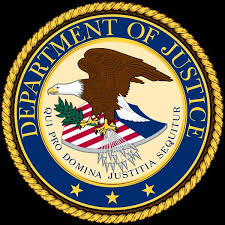To: "Bonnie Russell""scott huminski"
From: joseph zernik
From: joseph zernik
Subject: In defense of the Federal Courts against unwarranted, unfounded blast...Yet Kozinski must resign...
Hi Bonnie, hi Jon, hi all:
Thanks for the time and effort in your thoughtful responses. Let me help out here, because it sounded like you, Bonnie, and also you, Jon, were implying that the federal courts were not following the law. However, neither Bonnie's message, nor Jon's, included any mention of any facts, cases, or law. Entirely unprofessional!A. Our Federal Courts were particularly lenient with Pro Se filers!
In view of such unwarranted, unfounded attacks, let me state it clearly. Our federal courts were particularly lenient with pro se filers. Federal case law said:
Richard Fine indeed filed in pro se, albeit, he was an attorney, and a very able attorney at that. His skills were claimed to cost the State of California treasury some $1 Billion dollars in tax payers' money - that was either returned to tax payers, or that was prevented from being taken. I doubt that either Bonnie, or Jon, or any of the few hundred attorneys who are copied on this message could claim anything even close!
Even the California Court of Appeals recognized Fine's outstanding professional accomplishments - in its ruling to disbar Fine! Fine's bio can be found in the link to his name. I hope the implication was not that Fine was incompetent. That would be baseless as well.
In view of such unwarranted, unfounded attacks, let me state it clearly. Our federal courts were particularly lenient with pro se filers. Federal case law said:
- A document filed pro se is "to be liberally construed," Estelle, 429 U. S., at
- 106, and "a pro se complaint, however inartfully pleaded, must be held to less
- stringent standards than formal pleadings drafted by lawyers," ibid. (internal
- quotation marks omitted). Cf. Fed. Rule Civ. Proc. 8(t) ("All pleadings shall be
- so construed as to do substantial justice"). (Erickson v Pardus et ai, 2007)
- Moreover, the Court is to ignore any irrelevant or erroneous legal theory
- by a pro se filer, and do take into consideration the facts and the claims
- themselves, and if they can support some other valid theory, assign such
- legal theory to them, and review them pursuant to such valid legal theory
- (Haddock v Cal Board of Dental Examiners, 1985).
Richard Fine indeed filed in pro se, albeit, he was an attorney, and a very able attorney at that. His skills were claimed to cost the State of California treasury some $1 Billion dollars in tax payers' money - that was either returned to tax payers, or that was prevented from being taken. I doubt that either Bonnie, or Jon, or any of the few hundred attorneys who are copied on this message could claim anything even close!
Even the California Court of Appeals recognized Fine's outstanding professional accomplishments - in its ruling to disbar Fine! Fine's bio can be found in the link to his name. I hope the implication was not that Fine was incompetent. That would be baseless as well.
C. The narrative was simple
Richard Fine was the first to uncover payments of some $45,000 per judge, per year, to ALL (~450) Los Angeles Superior Court Judges, which went on for well over a decade, and continue to this date. Richard Fine was also the first to compile the data to show that it became practically impossible to win a case in LA County against the payer - LA County, during those years. Such payments were ruled in October 2008 "not permitted" on California Constructional grounds (Ca Court of Appeals ruling, and Metronews report).
On February 20, 2009, the Governor of California signed into law pardons for all judges at the urging of the California Judicial Council (Sbx2-11). Less than two weeks later, on March 4, 2009, in open court, Richard Fine was arrested by the Sheriff's Department Warrant Detail - albeit - with no warrant at all.
Richard Fine was the first to uncover payments of some $45,000 per judge, per year, to ALL (~450) Los Angeles Superior Court Judges, which went on for well over a decade, and continue to this date. Richard Fine was also the first to compile the data to show that it became practically impossible to win a case in LA County against the payer - LA County, during those years. Such payments were ruled in October 2008 "not permitted" on California Constructional grounds (Ca Court of Appeals ruling, and Metronews report).
On February 20, 2009, the Governor of California signed into law pardons for all judges at the urging of the California Judicial Council (Sbx2-11). Less than two weeks later, on March 4, 2009, in open court, Richard Fine was arrested by the Sheriff's Department Warrant Detail - albeit - with no warrant at all.
D. The key facts were even simpler
1) Richard Fine was held in solitary confinement, in Los Angeles County, California, for the past 9 months (gosh, it's almost Christmas, and he has been held since March 4, 2009).
2) Fine was held all along in a hospital room, with a wristband, as if he were ill, when in fact he was not.
3) There was and there is no warrant, no conviction, and no sentencing.
4) The Sheriff's Department of Los Angeles County denied access to the arrest and booking papers, in defiance of the California Public Records Act Cal Govt Code 6250-6276.48. The Legal Director of a California Civil Rights organization advised in this matter. He also stated that the Sheriff Departments of other counties in California were routinely asked for access to arrest and booking papers, and routinely complied with the law in this matter. That was this Legal Director's day in and day out job.
1) Richard Fine was held in solitary confinement, in Los Angeles County, California, for the past 9 months (gosh, it's almost Christmas, and he has been held since March 4, 2009).
2) Fine was held all along in a hospital room, with a wristband, as if he were ill, when in fact he was not.
3) There was and there is no warrant, no conviction, and no sentencing.
4) The Sheriff's Department of Los Angeles County denied access to the arrest and booking papers, in defiance of the California Public Records Act Cal Govt Code 6250-6276.48. The Legal Director of a California Civil Rights organization advised in this matter. He also stated that the Sheriff Departments of other counties in California were routinely asked for access to arrest and booking papers, and routinely complied with the law in this matter. That was this Legal Director's day in and day out job.
E. The law:
The law was most ably stated by the late Justice Brennan in Fay v Noia, (1963):
1) Marina v LA County (BS109420) - ancillary contempt proceedings to a civil litigation, Judge David Yaffe, LA Superior Court
2) Fine v Sheriff (2:09-cv-01914) - habeas corpus petition at the U.S. District Court, LA, Magistrate Carla Woehrle and Judge John Warner.
3) Fine v Sheriff (should be Fine v U.S. District Court LA) (09-71692) - emergency petition to the U.S. Court of Appeals, 9th Circuit, Chief Judge Alex Kozinski.
G. Alleged quartet of computer frauds in concert!
The case of Richard Fine was destined to become a landmark, if for nothing else - for the fact that alleged fraud was perpetrated in four (4) separate case management systems (CMSs) to accomplish the fete:
1) Sustain - the LA Superior Court
2) Inmate Information Center - Sheriff's Department of Los Angeles County.
3) PACER & CM/ECF platform - as implemented at the U.S. District Court, Los Angeles
4) PACER & CM/ECF platform - as implemented at the U.S. Court of Appeals, 9th Circuit
None of these systems were installed with any public oversight, or any reasonable opportunity for comment and challenge. Most of the rules embedded in the operation of such systems were never even fully published! The installation of the CMSs at the courts amounted to sea changes in the rules of the respective courts. Therefore - such installations should have been treated pursuant to rulemaking enabling acts, state or federal, respectively - Cal Code of Civ Proc 575.1 and Cal Gov Code 68071; Rule Making Enabling Act 28 USC 2071-2077. None of that took place - with predictable results.
H. Further Reading
Almost all relevant papers, dockets, and more, in these three cases can be found in an online archive, free of charge, at:
http://inproperinla.com/ It holds thousands of papers, but you can find the desired caption by searching party name using "Control F" function.
As usual, I am grateful for the thoughtful responses on the matter, for the detailed comments on the facts or on the law, particularly for the citations from Shaw.
Joe Zernik
Los Angeles County, California
Where we have"the best courts that money can buy"
The law was most ably stated by the late Justice Brennan in Fay v Noia, (1963):
- "The basic principle of the Great Writ of habeas corpus is that, in a civilized society... if the imprisonment cannot be shown to conform with the fundamental requirements of law, the individual is entitled to his immediate release".
1) Marina v LA County (BS109420) - ancillary contempt proceedings to a civil litigation, Judge David Yaffe, LA Superior Court
2) Fine v Sheriff (2:09-cv-01914) - habeas corpus petition at the U.S. District Court, LA, Magistrate Carla Woehrle and Judge John Warner.
3) Fine v Sheriff (should be Fine v U.S. District Court LA) (09-71692) - emergency petition to the U.S. Court of Appeals, 9th Circuit, Chief Judge Alex Kozinski.
G. Alleged quartet of computer frauds in concert!
The case of Richard Fine was destined to become a landmark, if for nothing else - for the fact that alleged fraud was perpetrated in four (4) separate case management systems (CMSs) to accomplish the fete:
1) Sustain - the LA Superior Court
2) Inmate Information Center - Sheriff's Department of Los Angeles County.
3) PACER & CM/ECF platform - as implemented at the U.S. District Court, Los Angeles
4) PACER & CM/ECF platform - as implemented at the U.S. Court of Appeals, 9th Circuit
None of these systems were installed with any public oversight, or any reasonable opportunity for comment and challenge. Most of the rules embedded in the operation of such systems were never even fully published! The installation of the CMSs at the courts amounted to sea changes in the rules of the respective courts. Therefore - such installations should have been treated pursuant to rulemaking enabling acts, state or federal, respectively - Cal Code of Civ Proc 575.1 and Cal Gov Code 68071; Rule Making Enabling Act 28 USC 2071-2077. None of that took place - with predictable results.
H. Further Reading
Almost all relevant papers, dockets, and more, in these three cases can be found in an online archive, free of charge, at:
http://inproperinla.com/ It holds thousands of papers, but you can find the desired caption by searching party name using "Control F" function.
As usual, I am grateful for the thoughtful responses on the matter, for the detailed comments on the facts or on the law, particularly for the citations from Shaw.
Joe Zernik
Los Angeles County, California
Where we have"the best courts that money can buy"
(KNBC, Oct 16, 2008)
I. CC
1) Prof Richard Posner
![[]](http://upload.wikimedia.org/wikipedia/commons/thumb/4/4f/Richard-A-Posner.jpg/130px-Richard-A-Posner.jpg)
2) Law school faculty
3) U.S. Dept of Justice, Inspector General Glenn A Fine, as an addendum to complaint about wide-spread corruption of the justice system in Los Angeles County, and refusal of FBI and U.S. DOJ senior officers to accord Equal Protection, providing instead fraudulent responses to inquiries by U.S. Congress.


4) Other Inspector Generals
5) U.S. Secret Service
6) U.N. High Commissioner for Human Rights


7) Basel Accords Committee

II. The Usual
![[]](http://t0.gstatic.com/images?q=tbn:zjS4lUNdCkM-vM:http://img.thesun.co.uk/multimedia/archive/00506/Alex-Kozinski_280_506474a.jpg)
IN SHORT - KOZINSKI MUST RESIGN!

"This case should demonstrate that the FBI will pursue all allegations of judicial corruption vigorously, as public corruption violations are among the most serious of all criminal conduct and can tear at the fabric of a democratic society," said John F. Pikus, special agent in charge of the Albany division, in a prepared statement.
At 09:09 06/12/2009, Bonnie Russell wrote:
I. CC
1) Prof Richard Posner
![[]](http://upload.wikimedia.org/wikipedia/commons/thumb/4/4f/Richard-A-Posner.jpg/130px-Richard-A-Posner.jpg)
2) Law school faculty
3) U.S. Dept of Justice, Inspector General Glenn A Fine, as an addendum to complaint about wide-spread corruption of the justice system in Los Angeles County, and refusal of FBI and U.S. DOJ senior officers to accord Equal Protection, providing instead fraudulent responses to inquiries by U.S. Congress.


4) Other Inspector Generals
5) U.S. Secret Service

6) U.N. High Commissioner for Human Rights


7) Basel Accords Committee

II. The Usual
![[]](http://t0.gstatic.com/images?q=tbn:zjS4lUNdCkM-vM:http://img.thesun.co.uk/multimedia/archive/00506/Alex-Kozinski_280_506474a.jpg)
IN SHORT - KOZINSKI MUST RESIGN!

"This case should demonstrate that the FBI will pursue all allegations of judicial corruption vigorously, as public corruption violations are among the most serious of all criminal conduct and can tear at the fabric of a democratic society," said John F. Pikus, special agent in charge of the Albany division, in a prepared statement.
At 09:09 06/12/2009, Bonnie Russell wrote:
This was sent to me by a member of the OK Legislature. Primarily because USAjudges.com deals with actual case numbers, names opposing counsel, and (so-called) "expert" witnesses. You know, facts.
http://www.tulsaworld.com/news/article.aspx?subjectid=298&articleid=20091204_298_0_TwoOkl912955
Bonnie
- ----- Original Message -----
- From: Jon Roland
- To: scott huminski
- Cc:
- Sent: Sunday, December 06, 2009 8:54 AM
- Subject: Re: Kozinski Fraud - and Kozinski Culture were the true problems
- I have had pro se cases before the federal court and did the removal myself. I found the prejudice was not so much against pro ses as such, but against anything less than a perfect professional legal product, and there is closer scrutiny of pro ses on that. A single mistake, no matter how minor, and they will dump it. They do that to lawyers, too. If you file anything in federal court, don't so much as make even an error of punctuation. It has to be something that would earn an A+ in a course on legal writing. Check all your cites and make sure every one is accurately on point. Don't present them with any unusual legal arguments that might require them to do any research. That is a sure way to get it dismissed for "failure to state a claim". Federal judges don't like novelty, no matter what the merits. They just want to clear their dockets, not "make new law".
- Remember, the purpose of the courts, as they see it, is not to render justice but to remove obstacles to the smooth flow of business. The only way to get justice is to get judges to fear that if they don't provide it there will be civil disturbance that would be bad for business. They will provide just enough justice to deceive people into thinking they have a chance to get it in court, and exhaust themselves in the judicial process, thus defusing anger that might otherwise erupt into violence.
- Keep in mind that the foundations for even the little justice the system provides was laid less by wise and beneficent jurists than by mobs of citizens who burnt down courthouses and hanged any judges they could catch. It took that to happen from time to time to get the judges' attention.
- If you haven't seen it, try to catch the movie Law Abiding Citizen for a sense of what a lot of people are feeling.
- "Nothing important ever happens unless someone is willing to kill somebody if it does not happen." - George Bernard Shaw.
-- Jon
No comments:
Post a Comment